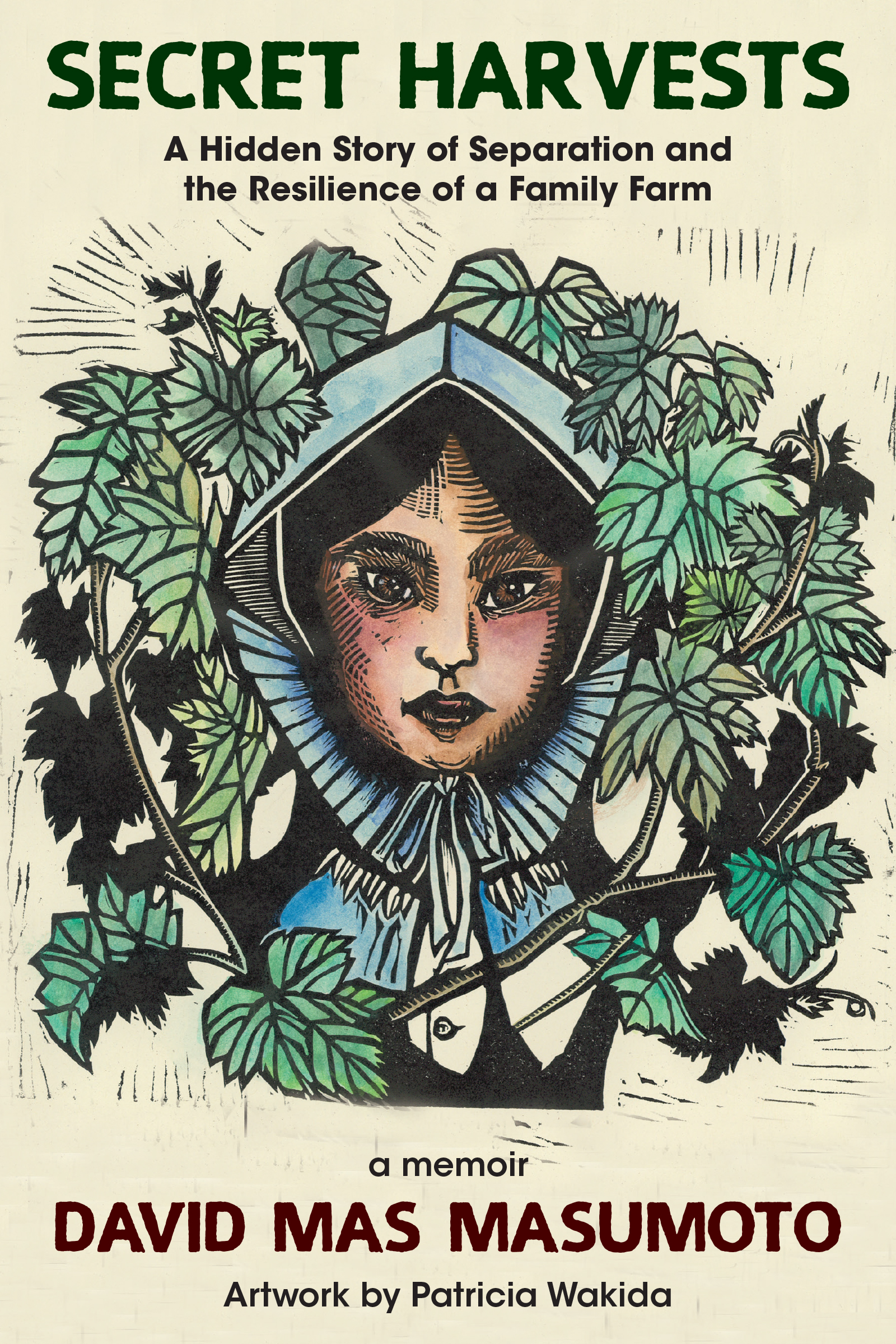Secret Harvests: An Excerpt From Organic Farmer Mas Masumoto’s Latest Book
Bioneers | Published: February 8, 2024 Food and Farming Article
In his latest book, which has been chosen as a finalist for the National Book Critics Award, Mas Masumoto tells the story of his Japanese American family that was separated by racism and the discrimination against people with developmental disabilities, and how they are reunited seventy years later, returning to their roots on his farm.
Excerpted from Secret Harvests: A Hidden Story of Separation and the Resilience of a Family Farm by David Mas Masumoto (Red Hen Press, 2023). Reprinted with permission from the publisher. Secret Harvests has been chosen as a finalist for the National Book Critics Award.
The Call—I Thought I Knew My Family
February 2012
Shizuko is sick, sick to death with this long agony. She lays still, her ninety year-old body motionless. Her wheelchair sits empty. A head pokes in, checking. Waiting for her to die? Or do they look because they care? A roommate whines in the next bed, but Shizuko should be the one requesting help. Now a stroke. Senses leave her body. Rest. The sentence complete. Sleep. Alone again, naturally.
Shizuko was assigned to hospice after spending thirteen years in Golden Cross Nursing Home. Before, she was housed at various state-run institutions, the type you’d see in movies with hundreds of forlorn bodies wandering long, dingy white hallways and rows and rows of beds. For decades, she roamed these halls ceaselessly. She outlived all her roommates.
Her family came as immigrants, picked peaches and grapes in the fields of California, found poverty and racism and yet stayed while struggling to build something. Shizuko avoided the Japanese American internment camps of World War II because she was classified as “retarded,” a derogatory term unfortunately commonly used in the past. Her life was branded with confusion.
A tiny woman, a little over four feet tall and weighing only seventy pounds, she was in constant motion, always relentlessly moving, seemingly endlessly active. Even when limited to a wheelchair, she could be left alone, content to shuffle throughout the structures, paddling the floor with her brightly colored, tiny, kid’s tennis shoes. A life of pain, illness, separation, departure, and return. Like a ghost, perpetually searching for stolen time.
A phone message from the Wildrose Funeral Home. A solicitation call? I dislike and distrust the phone—I farm, work with dirt, orchards and vineyards stretching along the horizon. I talk more to peaches than people because the trees pretend to listen. I find comfort and order in vine rows: their history I understand and accept.
I grew up in a home where phone calls were supposed to be for important exchanges. I can recall my grandmother Masumoto panicking with the sharp ring, ring, ring of the phone, yelling in pidgin Japanese, “Te-re-fon! Te-re-fon!”The rattling clamor followed by the brittle vibration that seemed to linger in the air triggered memories and emotions in her, a feeling I seemed to have inherited. Phone calls typically delivered bad news—like the call you get in the middle of the night that elicits a sick feeling that tightens your stomach.
But a bulletin from a funeral home? I’m too young. But the voice then asks for ”Carole Sugimoto,” my mom with her maiden name.
I return the call, ready to hang up with the first pitch. Instead, they inquire if Carole is related to a “Shizuko.”
“Who?”
I pause. I vaguely recall hearing of a mysterious aunt with “a mental problem,” as the family described and no one talked about. I was told that she had died in her youth, part of the Great Depression era when life was messy, especially for the poor.
The woman on the phone continues. She is “searching for next of kin and discovered Carole from your father’s obituary.”
“What? Who?” I think to myself. I’m confused, uneasy about a stranger talking about my family. Her voice makes me feel uncomfortable. I want to hang up.
“Shizuko Sugimoto, your mom’s sister, born in 1919.” The voice on the phone then adds, “Institutionalized at various facilities.”
I had once heard a story about some state mental institution and this forgotten aunt. But that aunt had passed long, long ago. Gone for seventy years. This news is disruptive and disturbing, a departure from my understanding of family. This simply does not make sense: is there a twisted riddle in my family’s past and can I trust this call?
”Shizuko is in Fresno, a few miles from your home and peaches and vineyards,” the telephone voice continues. “She’s alive, barely.”
